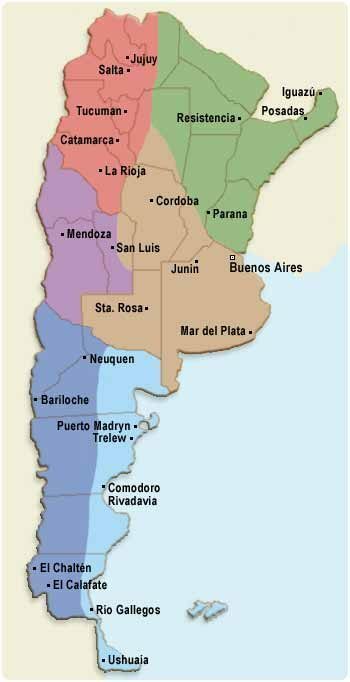Generation 27 Characteristics
Literature / / July 04, 2021
The Generation of 27 is the name given to the group o set of Spanish poets and writers –Especially Andalusians–, during the first decades of twentieth century. It is considered that the year in which the first texts of this generation appeared was in 1927 with the third centenary of the death of the poet Góngora. It is considered that in the year 1936 the dispersion of the generation, along with the death of García Lorca.
It is called a generation because it is a group of authors who were born in close dates, who share interests and objectives with respect to literature; in addition to a very strong friendship, influence and admiration. Among these interests are: the combination of the Spanish literary tradition –With the main influence of the Golden Age–, and the proposals of the so-called vanguards.
Characteristics:
- It does not come up with an opposing or contradictory idea. It is one of the generations or literary movements that did not rise up against something specific.
- Revaluation of the past Y of the Spanish literary tradition but mixing it with the avant-garde. In particular, they take the aesthetic and lexical tendencies of the poetry of the Golden Age and of the century XIX, however, they also introduce new avant-garde forms and a more accessible or colloquial.
- Influence of the poets of the Golden Age. From Luis de Góngora, his poetic language, his poetic reality and the renewal of his rhetoric. But also, Garcilaso de la Vega, Lope de Vega and Quevedo
- Influence of the Vanguards. Artistic movements developed at the beginning of the 20th century are known as vanguards.
- Aesthetic affinities. The poets of '27 show a clear disdain for sentimentality in their works. Achieve a balance between emotion and intellect; intelligence, sensitivity and sentiment are in his preferences above sentimentality and intellectualism.
- The metric. In the compositions they use free verse and white verse, especially in sonnets and romances.

Topics in the works of the Generation of 27:
- Love.
- The city.
- Destiny.
- Death.
- The universe.
- Freedom.
- Nature.
Generation 27 Poetry:
The main group of poets of this generation are: Luis Cernuda, Dámaso Alonso, Federico García Lorca, Pedro Salinas, Jorge Guillén, Rafael Alberti, Gerardo Diego and Vicente Aleixandre.
Generation of 27 Narrative:
Although poetry was the most developed literary genre by writers and thinkers of the Generation of 27, there are also narrative or prose texts written at that time by the same poets. For example: Manuel Halcón, Esteban Salazar Chapela, José María Souvirón, and also, Luis Cernuda, Rafael Alberti and García Lorca.
10 Examples of Generation 27 Literature:
Poetry (8 examples):
- Poem "The wind and the soul" by Luis Cernuda:
"With such vehemence the wind
comes from the sea, that its sounds
elementals infect
the silence of the night.
Only in your bed do you listen to him
insistent on crystals
touching, crying and calling
as lost without anyone.
But it is not he who in wakefulness
he has you, but another force
that your body is jail today,
It was free wind, and remember.
- Stanzas from the poem "I'll say how you were born" by Luis Cernuda:
"I will tell how you were born, forbidden pleasures,
As a desire is born on towers of fear,
Menacing bars, discolored gall,
Night petrified by force of fists,
Before all, even the most rebellious,
Suitable only in life without walls.
Impassable armor, spears or daggers,
Everything is good if it deforms a body;
Your wish is to drink those lewd leaves
Or sleep in that caressing water.
No matter;
They already declare your spirit impure.
It does not matter the purity, the gifts that a destiny
He raised to the birds with evergreen hands;
Youth does not matter, I dream more than man,
The smile so noble, silk beach under the storm
From a fallen regime ”.
- Stanzas from the poem “Insomnio” by Dámaso Alonso:
“Madrid is a city of more than a million corpses
(According to the latest statistics).
Sometimes at night I stir and join in this
niche in which I have been rotting for 45 years,
and I spend long hours listening to the hurricane moan, or bark
dogs, or softly flowing moonlight.
And I spend long hours moaning like the hurricane, barking like
an enraged dog, flowing like milk from the udder
hot from a big yellow cow.
And I spend long hours asking God, asking him for
what slowly rots my soul,
why more than a million corpses rot in this
city of Madrid,
why a billion corpses are slowly rotting in the world ”.
- Poem "Towards the end" by Jorge Guillén:
"We reached the end,
To the final stage of an existence.
Will there be an end to my love, to my affections?
They will only conclude
Under the cutting decisive blow.
Will there be an end to knowing?
Never never. You are always at the beginning
Of an inextinguishable curiosity
Facing infinite life.
Will there be an end to the work?
Of course.
And if you aspire to unity,
By the very demand of the whole.
Destination?
No, better: the vocation
More intimate.
- Poem "Cover me, love, the sky of the mouth" by Rafael Alberti:
"Cover me, love, the sky of my mouth
with that extreme foam rapture,
which is jasmine that knows and burns,
sprouted on tip of rock coral.
Cheer me on, love, your salt, crazy
Your lancinating sharp supreme flower,
Doubling his fury in the diadem
of the mordant carnation that unleashes her.
Oh tight flow, love, oh beautiful
snow-tempered gurgling
for such a narrow grotto raw,
to see how your fine neck
it slips on you, love, and it rains on you
of jasmine and saliva stars! "
- Poem "Lamentation of death" by García Lorca:
"Over the black sky,
yellow culverins.
I came to this world with eyes
and I go without them.
Lord of the greatest pain!
And later,
a candle and a blanket
on the floor.
I wanted to get where
the good guys arrived,
And I have arrived, my God ...
But later,
a candle and a blanket
on the floor.
Yellow lemon
lemon Tree.
Throw in the lemons
to the wind.
You already know... Because after that,
soon,
a candle and a blanket
on the floor.
Over the black sky
yellow culverins.
- Stanzas from the poem "Here on this white shore" by Pedro Salinas:
Here on this white shore
from the bed where you sleep
I am on the very edge
of your dream. If I gave
one more step, drop it
in its waves, breaking it
like a crystal. I go up
the warmth of your dream
up to the face. Your breath
you measure your gait
of dreaming: it goes slowly.
An alternating, mild murmur
give me that treasure
exactly: the rhythm
of your living dreaming.
I look. I see the stove
What is your dream made of?
You have it on the body
like a weightless breastplate.
I close you with respect.
To your virgin you turn
all whole, naked,
when you go to sleep.
- Verse of the poem "After love" Vicente Aleixandre:
"You stretched out here, in the dim light of the room,
like the silence that remains after love,
I rise slightly from the bottom of my rest
up to your edges, dim, muted, how sweet there are.
And with my hand I review the delicate boundaries of your life
withdrawn.
And I feel the musical, quiet truth of your body, what it does
an instant, in disorder, like a fire it sang.
Rest consents to the mass that lost its
Continuous form,
to take off up with the voracious irregularity of
the flame,
to become again the truthful body that in its limits
is remade.
Touching those edges, silky, unscathed, warm,
delicately naked,
it is known that the beloved persists in her life ”.
Narrative (2 examples):
- Fragment of the lost grove by Rafael Alberti:
“In the Cadiz city of El Puerto de Santa María, to the right of a path, lined with prickly pears, which walked until it reached the sea, leading to bearing the name of an old bullfighter -Mazzantini-, there was a melancholic place of white and yellow broom called La arboleda lost.
Everything was there as a memory: the birds hovering around already gone trees, furious to sing on bygone branches; the wind, bustling from one broom to another, asking for a long time for tall green glasses to shake to feel loud; the mouths, the hands and the foreheads, looking for a place to be shaded with freshness, with loving rest. Everything there sounded like the past, like an old forest that happened. Even the light fell like a memory of the light, and our childhood games, during the school hours, also sounded lost in that grove.
Now, as I go deeper, getting smaller and smaller, farther away along that road that will lead at the end, to that "gulf of shadow" that it waits only to close, I hear behind me the footsteps, the silent advance, the inflexible invasion of that as I remembered Lost Grove of my years.
That's when I listen with my eyes, look with my ears, turning my heart with my head, without breaking the obedient march. But she comes there, she continues to advance night and day, conquering my footprints, my dripping dream, incorporating faded light, fine shadows of screams and words... "
- Fragment of the story "La gallina" by Federico García Lorca:
"(Story for silly children)
There was a chicken that was an idiot. I said idiot. But he was even more of an idiot. She was bitten by a mosquito and ran away. She got stung by a wasp and ran away. She was bitten by a bat and ran away.
All chickens fear foxes. But this chicken wanted to be eaten by them. And the hen was an idiot. She was not a chicken. She was an idiot.
On winter nights the moon in the villages slaps the chickens big. Some slaps that are felt in the streets. It makes a lot of laughter. The priests will never be able to understand why these slaps are, but God can. And the chickens too.
It will be necessary for you all to know that God is a great LIVING mountain. It has a skin of flies and on top a skin of wasps and on top a skin of swallows and on top a skin of lizards and above a skin of worms and above a skin of men and above a skin of leopards and everything. Do you see everything? Well, everything and also goose bumps. This was what our friend did not know... "


